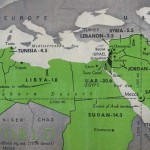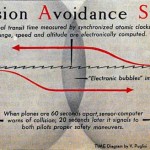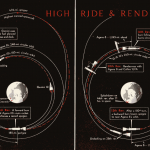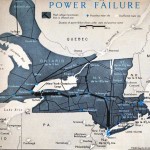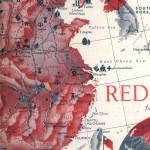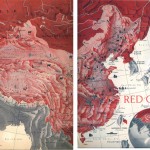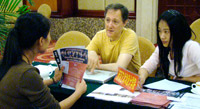 When I was a boy of 7, Friday was my favourite day of the week for two reasons: first of all, that morning was garbage collection, and for taking in the empty garbage cans, I earned an allowance of a dime, and second, it was the day of the week that the latest edition of TIME magazine was delivered to our house.
When I was a boy of 7, Friday was my favourite day of the week for two reasons: first of all, that morning was garbage collection, and for taking in the empty garbage cans, I earned an allowance of a dime, and second, it was the day of the week that the latest edition of TIME magazine was delivered to our house.
I loved looking at the covers, which, in the early 1960’s, were almost always hand illustrated. Some were sombre, some were funny and others were crazy, almost fearsome.
But what I most enjoyed were the maps and visualizations by Jerry Donovan, V. Puglisi and R.M. Chapin, Jr. I saved some of these in a scrapbook, and they are shown below. I’ve not been able to discover much about the three; I’ve managed to find nothing on V. Puglisi. Jerry Donovan is mentioned in an article from the AIGA on “The (Mostly) True Story of Helvetica and the New York City Subway“: Donovan was one of the judges of the 1964 system map competition. That’s pretty much everything I could find about him. There’s more on R.M. Chapin, including an account about how he had created a map of Yuri Gagarin’s space flight from liftoff to landing, without being told where the landing took place…the secretive Soviets kept the location of the landing site to themselves, but Chapin, an experienced cartographer, correctly calculated the spot from the orbit angles, time of the flight and the earth’s rotation during that time.
These maps and visualizations gave me an appetite for science, technology and politics. As a boy, during the summer breaks, I made my own maps and documented them with a narrative from events in my young life. These images have stayed with me and, I’m sure, influenced me in my educational and career choices.
In 1966, a change in advertising regulations forced Time to stop distributing its Canada edition. Not long after that, the subscription lapsed, and that part of my life was over.
In the 1970’s, when I was a fine art student at the University of Guelph, the work of these great illustrators came back into my remembrance when Paul Hess (now an Associate Professor at Emily Carr) mentioned J. Donovan in a conversation in the Printshop in the basement of Zavitz Hall. For an instant I wondered how Paul could have known about him—these names had been internalized in such a way as to make it seem that I had dreamt-up the whole thing.
